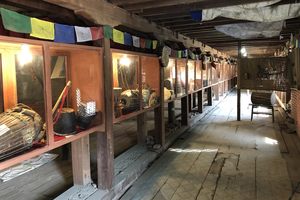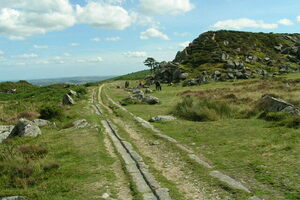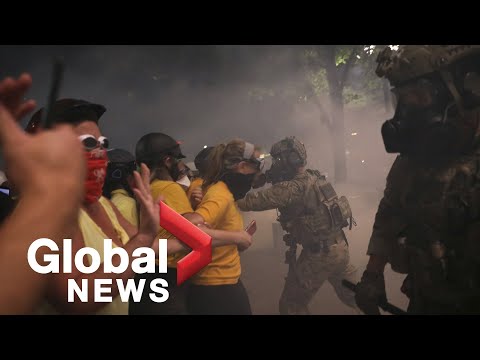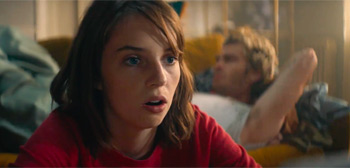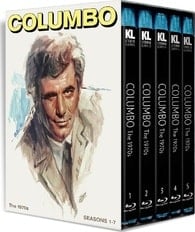In Conversation With Peter Murimi And Toni Kamau For I AM SAMUEL
Seven years ago, Toni Kamau and Peter Murimi started making their documentary I Am Samuel. Today their film is finally out in the world, and so is the story of its subject. Samuel is a gay man from a low-income neighbourhood in Kenya, where homosexuality is criminalised. For Samuel, this stigma brings with it the threat of violence and of severing all ties with his family. His struggle is depicted with intimacy and a clear-eyed naturalism in the film, directed by Murimi and produced by Kamau.
This is a confident documentary that takes a small, low-key, and very human approach to a huge issue facing Kenyan society. Through the course of the film, we see Samuel for who he is as a person, not defined just by his sexuality. We see the dynamic of his family life, and the relationship he has with his traditional, deeply religious father. Samuel falls in love over the course of his own story too, beginning a relationship with Alex partway through the film.
Murimi, a journalist and award-winning TV documentary maker, and Kamau, the youngest female African documentary producer ever to be invited onto the Oscars committee, have made a film that is warm and optimistic, allowing love and humanity to shine through, without ever losing sight of the at-times terrifying homophobia across Kenya. Here, they talk to Film Inquiry about how they made the film and their hopes for the impact it can have.
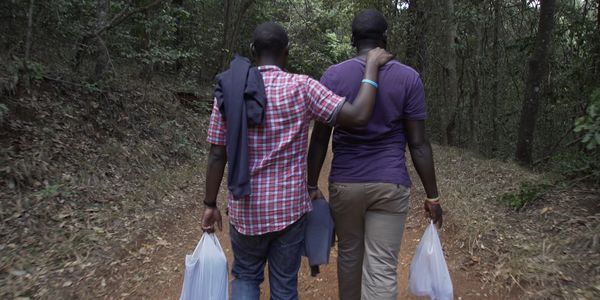
Andrew Young for Film Inquiry: How did you become aware of Samuel’s story? And at what stage did each of you become involved in the film?
Peter Murimi: For me, it stems from a very personal motivation. Someone who I am close to was really struggling with this issue, particularly the dynamic with the parents. So I was thinking ‘if only there was a film that tackled this subject’. That’s how I got interested in the subject, and through a mutual friend, I got introduced to Samuel. We had a chat and he was like, “Yeah, for sure, I’ve always wanted my story to be on screen.” So that’s how the journey, which turned out to be five years, began.
Toni Kamau: So I work as a documentary producer in Kenya, and Pete and I actually went to the same school! So I’ve known him for over a decade, and we had worked together on documentary projects for TV shows – half-hours for broadcasters, which were pretty quick turnaround times. In three months you have something done. So when we started this journey in 2013, at the time Kenya had a very nascent feature industry, so I really didn’t know what I was getting myself into. I thought it would be a year and it would be done. There was more story than we could fit in a year.
I got to meet Samuel, got to know him as a person, and though the story was really important to tell, especially as he comes from a lower-income kind of background. Stories about queer people from lower-income backgrounds in Kenya… we just need to have more of them told. A lot of people are already telling these [queer] stories, but I think it’s important that we tell them for lower-income people, from a position of sensitivity and respect.
In the film we see Samuel’s relationship with Alex and that is the basis of much of the story. But the film is still called I Am Samuel and has more focus on him. Was the focus always going to be on Samuel, and did you ever consider changing this?
Peter Murimi: I think the story is basically about Samuel. But what is interesting, which is true in many other cases, is you can learn a lot about Samuel by being with Alex. Or you can learn a lot about Samuel through the father and the mother. So you can see where some of his motivations, some of his conflict or character come from. For example, he’s very religious, it’s very important to him, and we know that as well by being with the parents; you can see that this is his roots, this is the foundation of it. So there are other important characters in the story, but all these characters help us inform and enrich Samuel’s narrative.
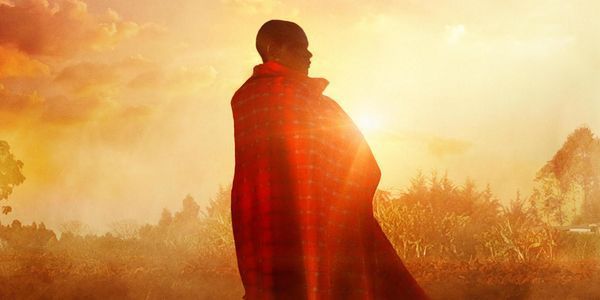
You said it took five years to make in total. Were you coming up against barriers when you were trying to make it? Were there barriers to actually filming it, like pushback or hostility from Samuel’s family?
Peter Murimi: I’ll speak about the actual filming and then Toni can say about [getting it made]. The biggest challenge filming it was getting the intimacy, which was really important to me. And there’s basically no shortcut to that but time. The same way that the more time you spend with someone the more you know them.
It was the same for them; they knew me more, the more that I was around them. So the biggest logistical hurdle for me was to get close, and that took time. The more I filmed, the better access I got and the more real the scenes were, and actually, the more open everyone was during filming. So for me, five years was the price for that intimacy.
Toni Kamau: It actually took seven years, because it was five years of filming and two years of [post-production]. Part of it was that we were really discovering the story as we were filming it and a lot of things changed in the course of filming the story. Initially, it was meant to be the story of Samuel and the sports team that he’s in and then we decided to take the focus off of that and make it a more intimate story. At the same time, there was someone pushing for an anti-gay law; it was called the ‘Stone the Gays’ law. So we were thinking, should we bring in the wider political context? And then that kind of died, which was great, and no longer became relevant.
So the story changed in terms of how much political context we put in, how much we focussed on Samuel. There was so much material to put in and we ended up in the cutting room, especially with Ricardo [Acosta] and Phil [Jandaly], the two editors who primarily worked on it. I think when we got into the editor’s room we really narrowed down on the story because there were several directions that we could go in.
There were also challenges to a certain degree with access. Access was turned on and off. For example, there was a partner – a woman, who had a child with Samuel – who turned off access. She said, “You can’t have me in the film.” So it was just challenging. And you have to respect that obviously. We started out planning to do one story and ended up with something that I think is absolutely special: an intimate story between Samuel and his father, and between him and Alex, who he started dating in the middle of us filming! It did change quite a bit while we were filming, so we were like ‘how are we going to turn this into a feature?’. I think we just ended up working with really talented editors who Pete worked very closely with to shape the story.
In terms of difficulties [getting the film made], it’s criminalised to be queer in Kenya, so there were sensitivities around character’s security. Even in the roll-out of this documentary, we would have loved to have pictures of all the characters and have them in all our press materials, but we decided it was better if we didn’t do that because we didn’t want that backlash back home in Kenya. So it’s been challenging in that sense but we’ve also got so many supporters.
I think we’re really lucky for a first feature to have like Doc Society on board, who has been such an amazing support. Sundance, a local documentary fund called Docubox, IDFA, Hot Docs, this organisation called Heinrich Boll [Foundation]: you know we’re really lucky that with this first feature that we had quite a bit of support. It was difficult but we were also lucky that we got the support to be able to do this film.
And then of course to be releasing it during Covid! Because we were meant to be travelling to Hot Docs for our world premiere, so we actually considered not releasing this year for many reasons. We had a discussion with Samuel and the unanimous decision was ‘yeah maybe makes sense to forge ahead’. Because also if you’re the subject of a documentary and you know it’s done there’s that catharsis of sharing your story with the world as a character, and Samuel felt really strongly about that.
You’ve said how important it was to spend a lot of time with Samuel and the others whilst filming. When making a documentary like this that has no script, how do you know when to stop? When has the story been told?
Peter Murimi: When you run out of money.
[The pair break into laughter.]
Peter Murimi: Actually I think you feel it. I don’t think there’s a formula, but there’s a point where you’re like ‘okay this is the end of the road’. Not just the directors but the characters say ‘okay I think we’re getting there’. So at that point you have to start wrapping up and starting the post-production process.
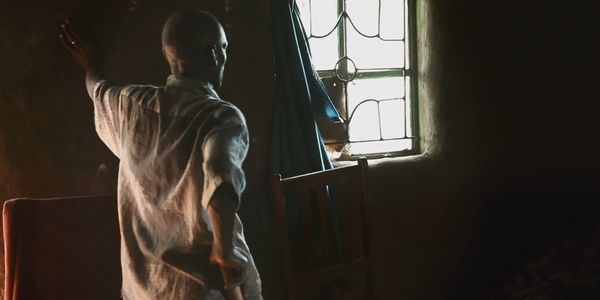
I want to mention the bit very early on in the film, where there is footage of a quite brutal homophobic attack on someone Samuel knows. A man is stripped and beaten and it makes for very difficult viewing. Being at the start, it colours everything else in the film. Was it always the case that this footage was going to go at the start, or did you ever consider using it elsewhere in the film?
Peter Murimi: That particular incident is Samuel’s really good friend. Samuel knows him really well. So when that happened we knew it was an important moment. But the thing about this film […] is that it’s a story about love between Alex and Samuel, and eventually a story about the love between the father and the son. That incident is very important for the context of the situation in Kenya, but it is not the story of the film. So there was an intention that if it was early on, or wherever it would have been, it was just about giving people the backdrop of what’s happening. And then we would go on and try and tell the story.
It is important to see that, but it is really hard to watch. When you’ve got scenes of real-life violence like that, when do you decide that it’s too much? How do you make the decision between what needs to be seen and what should not be seen?
Toni Kamau: Pete and I are very different. I am more conservative about those things, so we discussed it and I think the editor Ricardo is kind of like the middle ground. This ended up on like the last draft. I’m extremely conservative about things like violence. We just discussed it until we found a middle ground until we found a place that made sense to place it contextually. But honestly, we had some serious arguments about that scene in particular.
Ultimately we felt that it was important to show the potential horror. Because the violence in Kenya isn’t necessarily widespread, homophobia is. But when violence happens it can be extreme. It’s not common; I wouldn’t say it is like in Welcome to Chechnya with the Russian government, where it’s very extreme across the board. We live in a society where if you’re middle-class or upper-middle-class and you’re queer it is difficult when it comes to interpersonal relationships, but the risk of violence if you’re living in an apartment in an upper-middle-class neighbourhood is significantly lower.
But if you’re living in a lower-income neighbourhood then the risk of extreme violence is there, and we just felt like it was important to show that. Also later on in the film you do see Sippi [Samuel’s friend] being beaten up. They come to Samuel’s friend’s house. So I think that’s how we reached a middle ground because the argument was that someone does get beaten up, and it’s the only circumstance that prevents Samuel from getting stripped and beaten.
Peter Murimi: So just to add on to that. It was one of the scenes that we talked about extensively but what we also did was we tracked the person who was being beaten and we consulted him. He said, “It’s important for people to see what happened to me.” So we factored in his sentiment in the decision of putting it in the film.
Toni Kamau: I’d like to clarify a couple of things because I don’t want it to get taken out of context. There is a real risk of violence if you’re queer in Kenya. I think I was talking more about being stripped naked and beaten like [the footage in the film]. The risk of that is lower, but there is a risk of violence because of homophobia. I think it just depends on the context.
I think the fact that we have laws that criminalise homosexual intimacy mean that those laws are used to intimidate queer people in Kenya or to harass them, and they’re also used to threaten people. For example, when we were filming two or three years ago, two men in coastal Kenya actually had a very invasive search done when they were accused of being queer. It was an invasive search of their body parts to ‘prove’ that they were queer, and that they had had homosexual intimacy. And a court allowed them to do that.
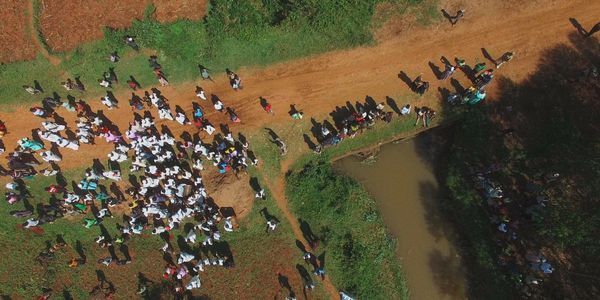
How big a role do you think Kenyan film and film in general can play in changing those attitudes? And can you feel a change within the Kenyan film industry? Are attitudes changing or is the film industry lagging behind a bit?
Toni Kamau: I think there’s a lot of people telling queer stories, which is amazing. The other people who have come before us were in different formats; there were Stories of Our Lives which was at Berlin, there was Rafiki which was at Cannes. Both films were banned in Kenya, so it’s hard to see the films there. I’m hoping we will be able to bring back our documentary to Kenya because it’s important for the community to see themselves on screen, or someone who looks like you or thinks like you.
Because I think when we are talking about queerness, it’s different in a Western context than it is in an African content. The kind of coming out experience that you would have in an African family [is one] where people are not going to shout at each other; it’s going to be silence and you won’t be allowed to go home for a while… and then you’d be allowed to come back because you’re family anyway.
So there are just so many nuances that would be easily understood by a Kenyan that might, honestly, to a certain degree, get lost in translation if you come from a more Western background and are expecting a more violent confrontation. You know, if you’re American and you’re expecting this loud big scene; honestly that’s not how things go down in Kenyan families. Even myself I would recognise the dynamics between Samuel and his father; I’m not queer but I would recognise the dynamics between someone and their parents when you have done something that’s angered your family. You just recognise that that’s how people act when they’re angry [in Kenya].
Peter Murimi: I think this film could be a perfect partnership with the movement. Because what films do is bring it to the mainstream. Like Toni said, two things [are important]. Most important is if you’re queer and you’re in Kenya then this film validates you; you see someone you completely identify with, which is very important. Secondly [is] being Kenyan and telling it with all the nuances of what happens in our culture.
If you’re queer in Kenya people want to put you in a box and they expect you to behave a certain way, but we have shown someone like Samuel: very religious, as African as you can get, even his politics leans towards the conservative, but also he’s gay. And he’s allowed to be all these things. There are so many elements in his life that people can connect to, and you hope that can bring these new connections and people can look beyond his sexual orientation.
So I think the film can do that in a beautiful way, bring this connection. And I’m hoping that there was Stories of our Lives, there was Rafiki, now we’re doing I Am Samuel, then there will be more films. The more that is done the more it brings it a little bit into the mainstream, not in the periphery. And that maybe can help bring change. [It will happen] slowly, but hopefully it will be helpful.
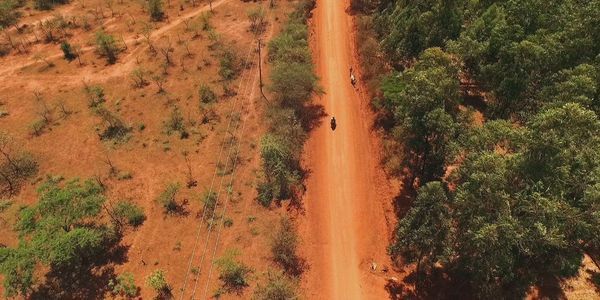
For both of you going forward, is it your aim to keep making films that change views and fight for social causes?
Peter Murimi: I think for me the most important stories that I have done have found me, in a way. I have had like a past personal connection or motivation to it; so I think I just continue to be true to who I am and what drives me. That is what has brought me here and I will continue this way. But what’s important, especially with all the work we’ve done with Toni is, if people are underrepresented, are voiceless on the periphery of society, it’s important to empower them and bring their narrative up-front and equalise everyone.
Toni Kamau: Yeah this is a special film because it has its own visual language, and I just think it’s telling a very intimate personal story. It was blood, sweat, and tears for both of us, because it was our first feature documentary experience. And I think it’s amazing to work in this social justice phase because sometimes those stories could lead to real change.
Generally as a producer, like with my production company, We Are Not the Machine, we are interested in telling stories of outsiders, rebels and change-makers. I think there’s a balance in terms of the stories we want to tell. We want to tell stories of someone like Samuel, who is considered an outsider in his community, and there’s another documentary that I worked on that is on the called Softie [directed by Sam Soko, the film won a Special Jury Award for editing at this year’s Sundance], and that’s about an activist, who’s kind of like this rebel/change maker. So we are just working in that space of people who do not conform, either because they are not necessarily accepted, or just because they choose not to play by rules which ostracise people or which aren’t inclusive. So I think I’m just generally interested in those stories.
How is Samuel now? Are you in contact with him and Alex?
Peter Murimi: He is doing well. We talk frequently and he is happy that his film is out there and he is sharing his story. It’s just very sad it is during Corona time; he would have loved to interact directly with an audience. They are both doing very well, so are the parents, and just happy and excited that the film is out.
We want to thank Peter Murimi and Toni Kamau for taking the time to speak with us.
I Am Samuel is a depiction of what it means to be gay in modern Kenya. What other documentaries are good examples of exploring the experience of being queer in a country where your identity is criminalised? Let us know in the comments!
Does content like this matter to you?
Become a Member and support film journalism. Unlock access to all of Film Inquiry`s great articles. Join a community of like-minded readers who are passionate about cinema – get access to our private members Network, give back to independent filmmakers, and more.
Join now!
